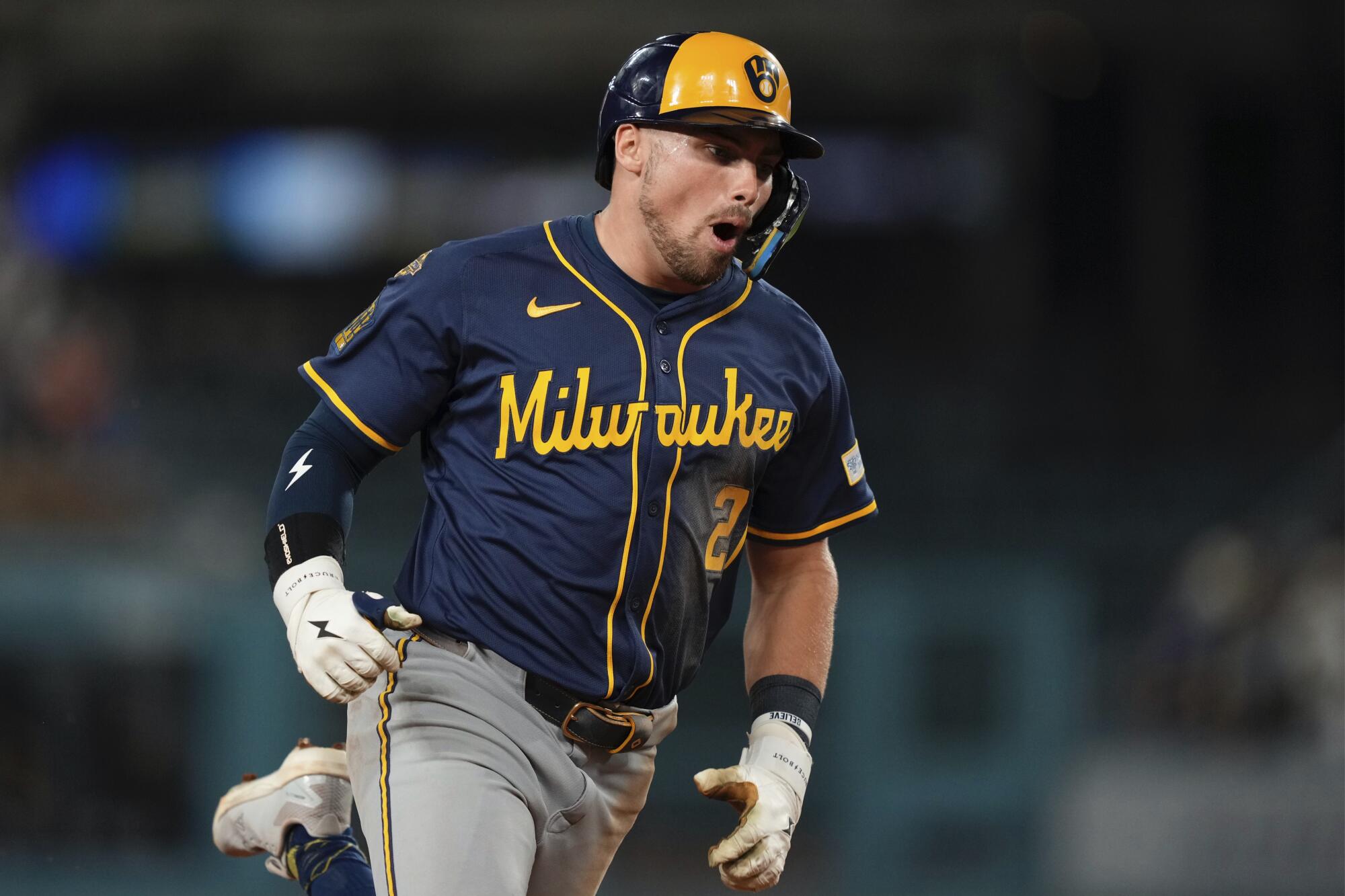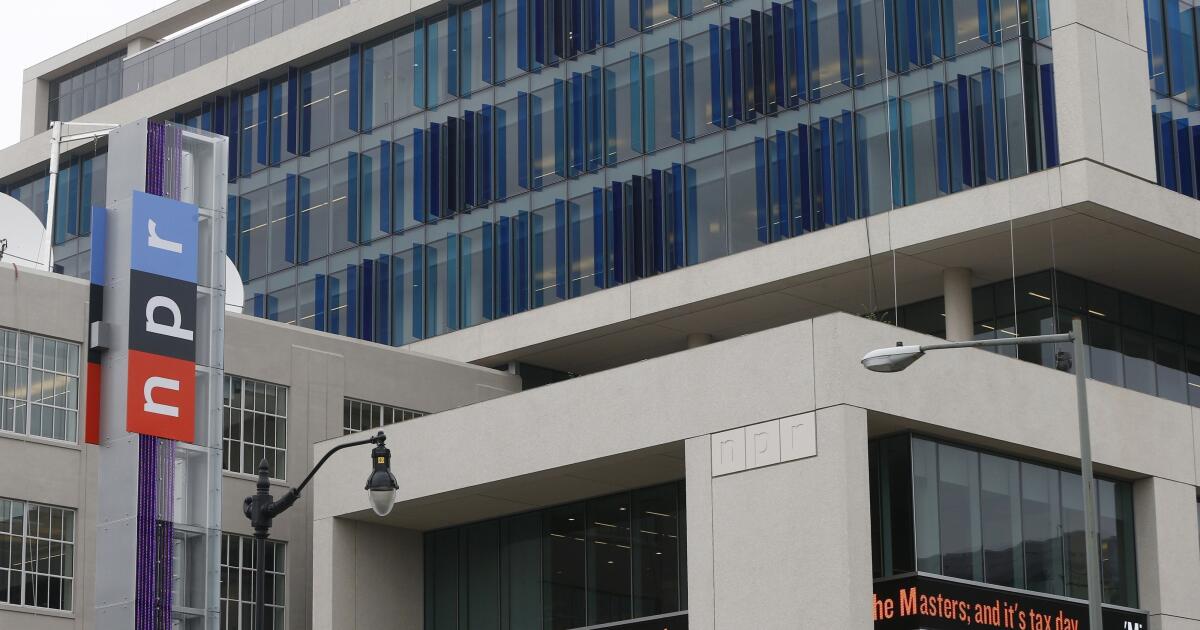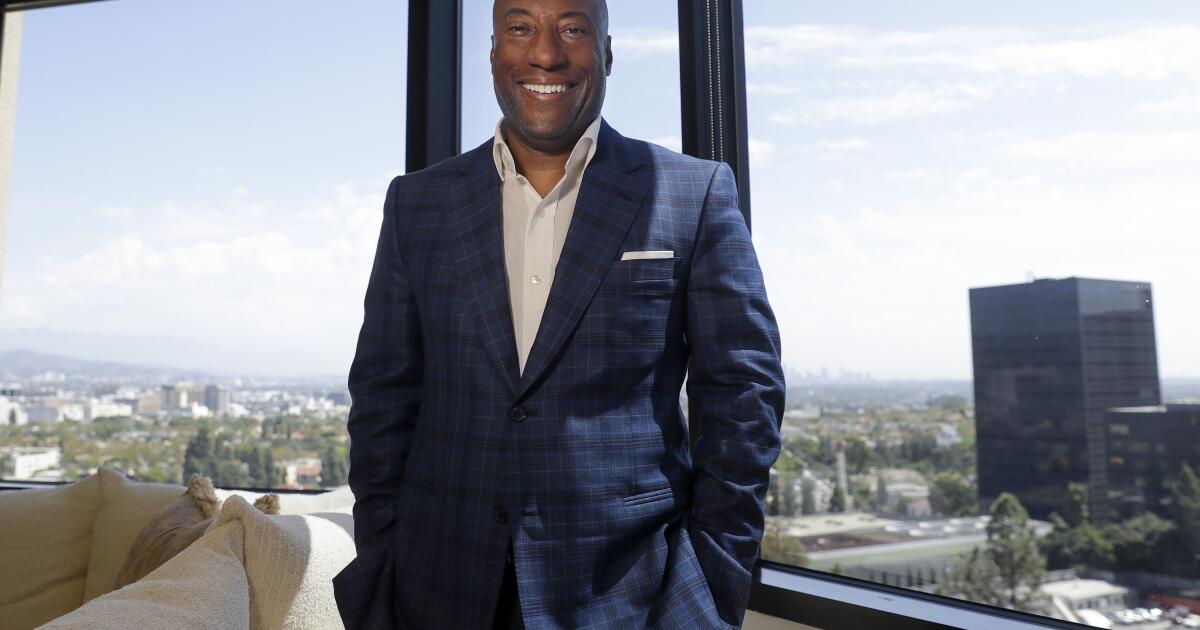Why the small-market Milwaukee Brewers might be America’s team
If you’re a Dodgers fan, of course, you would love to see the Dodgers win the World Series again. If you’re a baseball fan above all, though, you ought to be pulling for the Milwaukee Brewers.
The Dodgers served as a convenient bogeyman for owners of many other major league teams last winter. To fans pointing a collective finger at the owner of their local team, all too many of those owners pointed a finger in our direction: It’s not us. It’s them.
“The Dodgers are the greatest poster children we could’ve had for how something has to change,” Colorado Rockies owner Dick Monfort told the Denver Gazette last March.
How, those owners shrugged, can we compete against a team playing in a major market and spending half a billion dollars on a star-studded roster?
The Dodgers are 58-40.
The Brewers play in the smallest market in the major leagues — Sacramento included, Denver definitely included.
The Brewers are 57-40.
This is not about a sprinkling of fairy dust. The Brewers have made the playoffs six times in the past seven years, prospering even beyond the financially motivated departures of star shortstop Willy Adames, Cy Young winner Corbin Burnes and two-time National League reliever of the year Devin Williams, and even after manager Craig Counsell and president of baseball operations David Stearns left for teams in major markets.
“It’s not really an abnormal year,” said designated hitter Christian Yelich, the Brewers’ franchise anchor. “Each year, we’re picked to finish last or second-to-last in our division, regardless of what happened the year before.”
The Brewers cannot pay the going rate for power, so they do not try. Of the free agents signed by Milwaukee last winter, the most expensive one in the lineup for Friday’s victory at Dodger Stadium: outfielder Jake Bauers, signed for $1.4 million. Shortstop Joey Ortiz was obtained in the trade of Burnes; third baseman Caleb Durbin was acquired in the trade of Williams.
The Brewers rank in the bottom 10 in the majors in home runs, but they rank in the top 10 in walks, stolen bases, sacrifice bunts and fewest strikeouts.
Milwaukee’s Caleb Durbin celebrates after hitting a solo home run in the seventh inning of a 2-0 win over the Dodgers at Dodger Stadium on Friday night.
(Mark J. Terrill / Associated Press)
“We know what we are,” Yelich said. “We know we’re not going to have a lineup full of guys that hit 30 homers. You’ve got to force stuff to happen sometimes and try to put pressure on the other team and try to manufacture runs any way you can.”
They are one of two teams — the Detroit Tigers are the other — to rank among the top 10 in runs scored and in earned-run average. No NL team has given up fewer runs than the Brewers.
The Dodgers lead the majors in runs scored. In four games against Milwaukee, the Dodgers have scored a total of four runs.
“They can really pitch,” Dodgers manager Dave Roberts said. “The ’pen is lights out. They catch it. They play good defense. In totality, they do a good job of preventing runs.”
Whether they can do a good job of deterring a lockout, well, that might be a whole other ballgame.
The collective bargaining agreement expires after next season. The owners have not explicitly stated a salary cap is their goal but, at least the way the players’ union sees it, why else would commissioner Rob Manfred already be talking about a lockout as a means to an end?
At the All-Star Game, union chief Tony Clark blasted the concept of a salary cap.
“This is not about competitive balance,” Clark said. “This is institutionalized collusion.”
A salary cap would provide owners with cost certainty and potential increases in franchise values, not that fans would care much about either. So, to the extent that owners might settle on a talking point in negotiations, what Manfred said at the All-Star Game would be it: “There are fans in a lot of our markets who feel like we have a competitive balance problem.”
If you’re the union, you’ll say MLB has not had a repeat champion in 25 years. If you’re an owner, you’ll say no small-market team has won the World Series in 10 years.
If you’re the union, you’ll say expanded playoffs offer every team the chance to win a wild-card spot and get hot in October, as the 84-win Arizona Diamondbacks did two years ago. But, should the Brewers win the World Series this year, owners certainly would call it the exception that proves the rule.
Over the past seven years, the Brewers have made the playoffs as many times as the Yankees have. Yet, for all their success in the regular season, the Brewers have not won a postseason series since 2018.
Baseball has not lost a regular season game to a work stoppage since 1995, the last time the owners pushed hard for a salary cap. They might do so again next year, which would jeopardize the 2027 season, but to argue small markets need a salary cap to win after the team in the smallest market won the World Series might ring hollow.
If the Brewers’ success could derail the potential disaster that would be a work stoppage, America ought to be rooting on The Miz.



